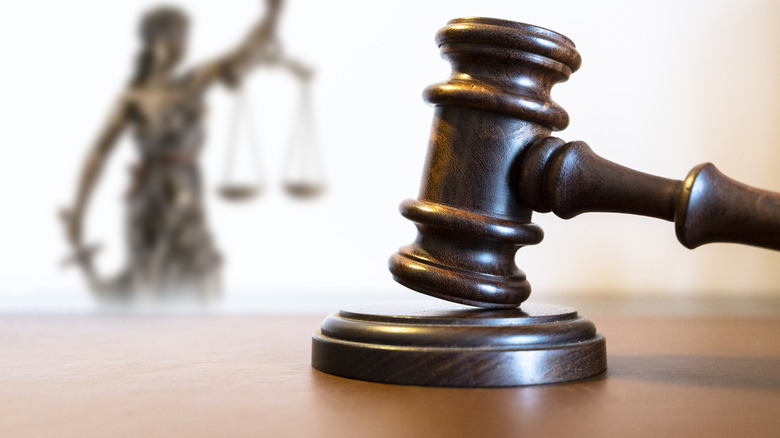You'll Be Fined $500 For Breaking A Louisiana Pizza Law
There are some quirky laws around the country. One example is that a seemingly normal everyday activity could get you in trouble with the law in Louisiana. Here, it is illegal to order food or anything else under someone else's name without them saying it's okay. This rule helps stop prank orders that could cost someone money, cause a hassle, or even upset them. Sometimes, these jokes go too far, turning into harassment. Imagine getting pizza deliveries you never asked for, over and over, leaving you to sort out the mess and foot the bill.
An incident in Massachusetts in 2010 involving a man ordering $3,900 worth of pizzas supposedly for Bob Dylan's crew is a notable case of a prank involving unauthorized ordering. The man, who claimed to be part of Dylan's entourage, ordered 178 gourmet pizzas from Antonio's Pizza in Amherst, Massachusetts. The pizzas were never picked up, leading to substantial waste and financial loss for the business. The prankster was later identified and agreed to make restitution for the order.
This is how the law acts like a shield, keeping businesses safe from fake orders and making sure people aren't bugged over and over. Some folks might think it's all in good fun, but these pranks can hit hard and can cost you a fine of up to $500 if found guilty, and even lead to misdemeanor charges, depending on the severity of the prank.
Why the Pizza Law?
Sometimes, a quick look at the kind of people a law protects can give you the reason behind the enactment of the law. Louisiana's "Pizza Law," officially known as RS 14:68.6, was created to tackle a real headache: prank deliveries and harassment. Under RS 14:68.6, it's illegal for anyone to intentionally order goods or services for delivery to another person under certain conditions. First, the recipient hasn't authorized the order, doesn't live with the person who ordered the goods, and isn't receiving the items as a gift. Secondly, the recipient is expected to pay for these goods or services, whether in advance or upon delivery, without their prior agreement, or they must return the items at their own cost. Lastly, the intent behind placing the order must be to harass or annoy the recipient.
The last condition speaks to the fact that, sometimes, people go overboard with pranks, which can be a big annoyance and even cost money. They can also shake things up not just for the person who gets the unexpected delivery but for the conveyor of the prank; restaurants and food delivery services, who operate on tight margins, so fake orders result in wasted food, time, and money. By enforcing a penalty, the state aims to deter such actions and maintain order within local communities. Besides, with more food-related pranks (and their resultant wastage), we might have more restaurants struggling in 2025 like we reported in 2024.
Enforcement of the law
Though the pizza law is in play, there are few documented cases of active enforcement. One scenario where a person might see a courtroom is when a business or individual files a formal complaint. If a person repeatedly receives unwanted deliveries and reports it to law enforcement, the perpetrator could face penalties. However, since prank food deliveries are often treated as minor infractions, cases that fall under the jurisdiction of this law may not always be prioritized.
Another aspect to consider is the protective measures that businesses have put in place, to handle such situations. Many restaurants now require an upfront payment for deliveries, which reduces the chances of prank orders being successfully placed. This policy shift, combined with advancements in digital ordering and caller ID tracking, limits the probability of prank deliveries, making the law less frequently invoked.
Louisiana's law includes various consumer protection measures, and this aligns with the broader goal of preventing misuse of services. The existence of such regulation, even if rarely enforced, shows the state's stance on accountability in regards to commercial transactions. Public reaction to the law is mixed. Some find it humorous and view it as an example of outdated or overly specific legislation, while others see its value in protecting businesses and individuals from financial inconvenience. Regardless, the law remains in the books.


